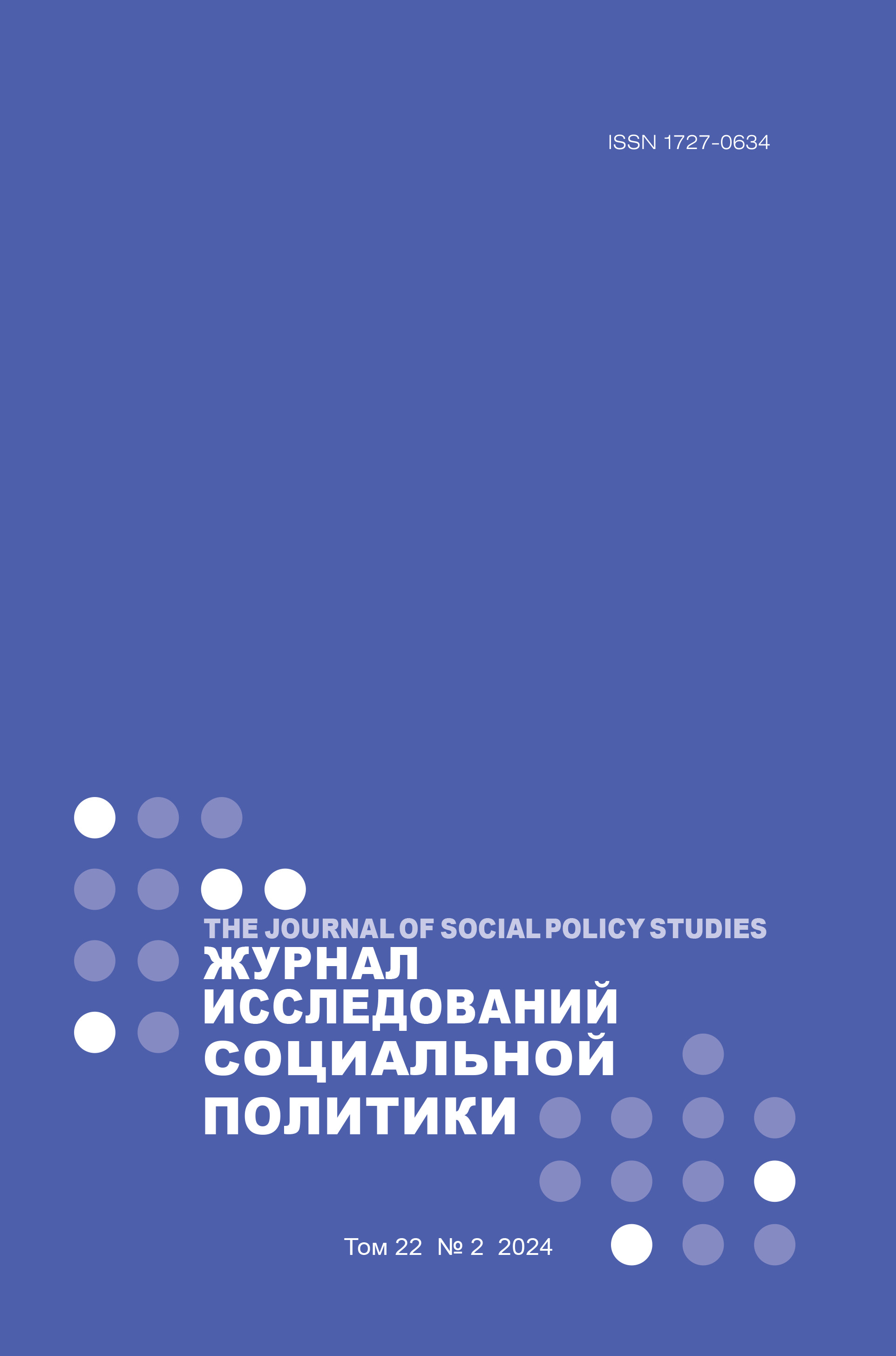Cognitive Mediators of Income Satisfaction in Retirement
Abstract
Successful aging is one of the leading trends in interdisciplinary research. Most of the research examines the actual level of income and its impact on the subjective well-being of pensioners. This article presents the results of a study aimed at analyzing the factors that determine income satisfaction among pensioners. Based on the data collected in the Chelyabinsk region, the article shows how an understanding of the complex determination of financial satisfaction is formed during the period of late socialization. The study shows that income satisfaction in retirement is not only the result solely of socio-economic factors, but also depends on biological and cognitive factors, as well as on the overall level of subjective well-being. One of the key conclusions of the article is the identification of cognitive variables, such as positive basic beliefs and a temporary focus on the present, as significant predictors of income satisfaction. These factors act as mediators of the influence of socio-economic and biological variables on economic well-being. The study shows the specific role of cognitive variables in the process of late socialization and provides a broader understanding of the mechanisms underlying pensioners’ satisfaction with their financial situation. On the basis of the data obtained, the authors recommend cognitive behavioral therapy in the pre-retirement period to correct ideas about oneself, one’s age, occupational level, and the world in order to increase the level of subjective economic well-being in retirement. This approach can help improve overall well-being and life satisfaction in retirement. The study confirms the need for an integrated approach to the analysis of income satisfaction in retirement and suggests new directions for future research and the development of social programs to support pensioners.















